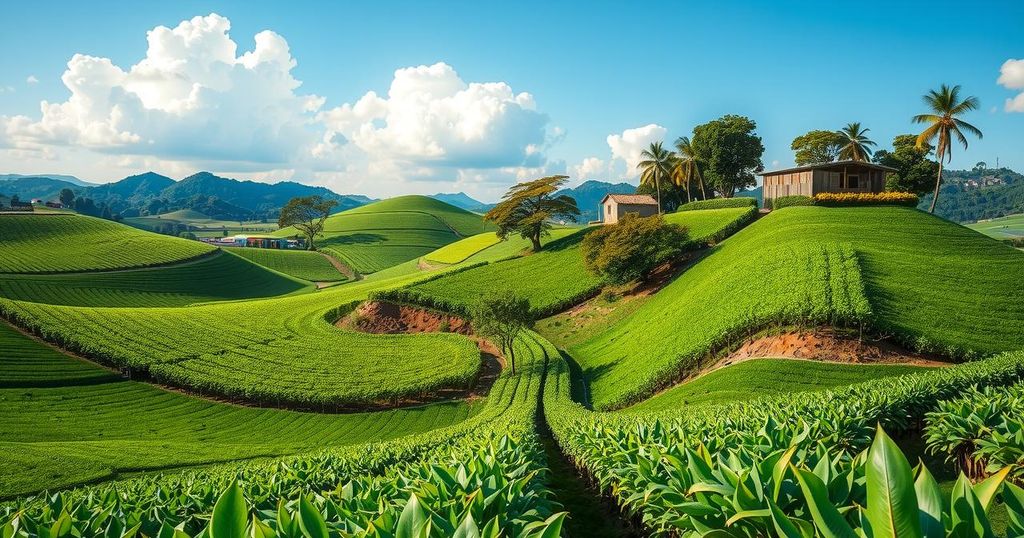Farmers in Madagascar’s vanilla regions are struggling with climate change impacts, including altered rainfall and temperature patterns. Despite recognizing these challenges, only a small percentage are adapting their farming practices, largely due to financial constraints. The study emphasizes the need for targeted support programs to enhance resilience among these farmers.
Recent studies reveal that farmers in Madagascar’s vanilla-producing regions are grappling with the detrimental effects of climate change. Nearly all farmers report significant alterations in temperature and rainfall, complicating their already difficult task of feeding their families. Despite their concerns for the future, only a minority is adapting their farming practices to address these ongoing challenges.
The research conducted in 2023 involves interviews from villages near Marojejy National Park, where farmers primarily cultivate vanilla beans along with other crops such as rice, bananas, and coffee. They rely on basic hand tools and local water sources for irrigation. Yet, diminishing water supplies and extreme weather patterns, including excessive heat and heavy rainfall, have severely impacted their agricultural productivity.
Three-quarters of the surveyed farmers noted that their water sources are dwindling, with many reducing their cultivation efforts due to adverse weather. There has also been an increase in pests, with farmers reporting more cases of malaria and diarrhea, further complicating their circumstances.
Despite these alarming trends, only one in five farmers surveyed has implemented adaptive strategies such as utilizing fertilizers or modifying crop calendars. This lack of adaptation is significantly lower than reported in other countries, implying that financial constraints may inhibit farmers from making necessary changes to their practices.
The study highlights a correlation between the likelihood of adaptation and the possession of durable goods; individuals with access to more resources are better positioned to adjust their farming. Given that a substantial portion of Madagascar’s populace lives in poverty, financial barriers are indeed a critical concern.
Experts suggest that programs aimed at subsidizing costs associated with adaptive practices could benefit impoverished farmers. Additionally, incorporating diverse practices such as intercropping fruit trees or integrating fish farming into rice paddies could enhance food security, improving pest control and fertilization processes.
Farmers in Madagascar face myriad hazards, including cyclones that often wreak havoc on their lands, compounding the challenges posed by climate change. Poor transportation routes during the rainy season further exacerbate their difficulties in reaching local markets.
Additionally, similar climatic shifts are observed across other parts of Madagascar, suggesting a broader issue. The data indicates a rise in average temperatures and a decline in precipitation over the last 50 years, worsening conditions for agriculture.
As the research proceeds, investigators plan to extend their study to 34 villages to identify trends across diverse habitats and analyze the efficacy of the farmers’ adaptive measures. They anticipate that climate change will necessitate greater flexibility and resourcefulness from farmers, which poses significant risks to their economic stability and food security.
Funding for this study was generously provided by the joint NIH-NSF-NIFA Ecology and Evolution of Infectious Disease Program.
Farmers in Madagascar face significant challenges as climate change affects their agricultural practices and livelihoods. Despite recognizing the impacts of changing weather patterns, many are reluctant or unable to adapt their methods due to financial constraints. Strategies that incorporate alternative practices may enhance resilience, yet such adaptations remain limited. Ongoing research aims to expand understanding and support for these vulnerable communities, emphasizing the need for timely interventions to sustain farmers’ livelihoods in the face of climate adversity.
Original Source: today.duke.edu






